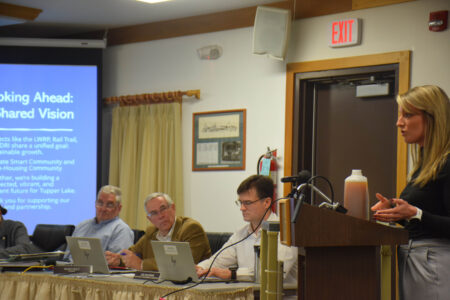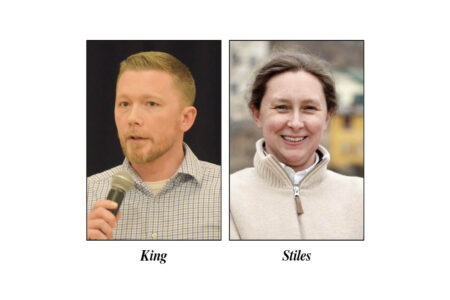State lawmakers consider legalizing ‘magic mushrooms’
ALBANY — Some New York lawmakers are interested in changing state laws about psilocybin, the psychoactive drug found in so-called “magic mushrooms,” to allow the substance to be used to treat a wide variety of physical and mental health concerns.
In a small hearing room in Manhattan on Tuesday, the Assembly Health Committee heard from more than a dozen experts and advocates who have studied, used or push for access to psilocybin therapy. The lawmakers, Democrats and Republicans, expressed a mix of skepticism and interest in the use of the drug, and seemed most interested in its potential use to treat post-traumatic stress disorder for war veterans and first responders.
Psilocybin is classified as a Schedule 1 drug by the federal government, the same class as heroin, LSD and marijuana. That classification heavily restricts medicinal use and research, and the U.S. is also beholden to a United Nations Convention that restricts psilocybin use to medical and scientific applications only.
But as states across the country have moved to take more local control over drug policy, psilocybin has arisen as a potentially useful drug to treat a wide range of physical and mental illnesses. Oregon was the first state to decriminalize and regulate its use for medical purposes with a law passed in 2020, and in 2022 Colorado followed suit. Both states set up systems where people seeking treatment for a diagnosed medical condition considered treatable with the drug can get it through a guided experience at a “service center.”
The bill introduced in New York wouldn’t follow that same model, and would rather direct psilocybin treatment through the existing health care system. The New York model would also allow the drug’s use for a wider variety of illnesses than the western states permit.
Under the bill introduced by Assembly Health Committee Chair Amy Paulin, D-Westchester, the list of qualified diagnoses would include, but isn’t limited to, autism, arthritis, ADHD, anxiety, eating disorders, bacterial infections, addictions including nicotine, cancer, fatigue, stroke, cluster headaches, episodic migraines, Parkinson’s disease, PMS, “long COVID,” traumatic brain injuries and an undefined list of mental illnesses that includes disorders not identified by the Diagnostic and Statistical Manual of Mental Disorders.
The New York law would require professionals who have an existing medical, psychiatric or other practice license from the state Education Department to seek a separate license to prescribe and administer psilocybin treatments. That would come with a separate educational process, run by the state Education Department, and the department would also be tasked with maintaining a set of best practices and interaction warnings for the drug.
The state would also set up a cultivation program, allowing mushroom farmers to grow the fungi that naturally produce psilocybin and laboratories to both refine naturally sourced and produce lab-made psilocybin.
The experts who testified in Manhattan on Tuesday spoke broadly about the clinical studies and long-term testing that has shown psilocybin can be useful in treating mental illnesses, especially PTSD for severely traumatized individuals. Doctors of clinical psychology, registered nurses who have worked in treatment centers in legal jurisdictions, individuals who underwent psilocybin therapy and researchers who have studied its uses all said it has a high rate of success, minimal risk of damage or addiction, and a long history of use in a broad range of cultures.
Dr. Alex Camargo, a psychologist who practices in Manhattan and has studied psilocybin treatment, said there’s a wide range of diseases the drug can treat.
“I’ll start with what is the most mature in terms of the FDA approval process, which is treatment-resistant depression, cancer-related anxiety, cancer-related depression, followed by what I believe is in phase two trials now, PTSD, and alcohol-use disorder was mentioned,” he said.
Dr. Kristel Carrington, a psychotherapist, psychopharmacologist and a diplomate with the American Board of Psychiatry and Neurology, said the research that’s been done over the last few decades into psilocybin is more than enough evidence to prove it’s safe and effective.
“We have enough research on its potential benefits and its safety profile,” she said. “When I think about some of the cancer drugs that can get approved, we don’t have the same amount of research for some of them as we do for psilocybin and other psychedelics. And those drugs come with some very significant risks.”
The bill introduced in Albany to legalize psilocybin didn’t make it to a full vote in either chamber. It didn’t even get a committee vote this year, but it’s likely to be reintroduced next year, potentially with changes in light of Tuesday’s hearing.




